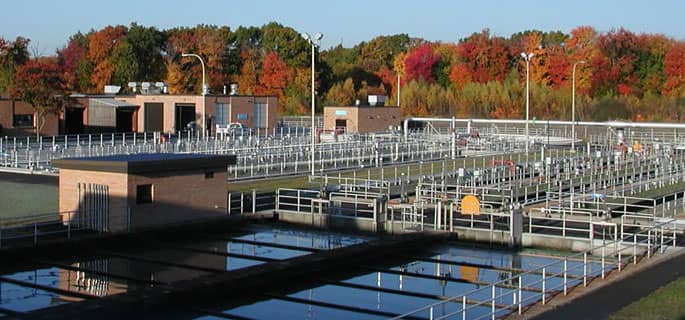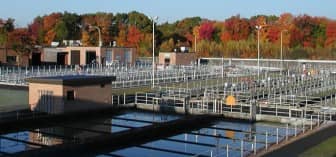

WARWICK, RI — The Department of Environmental Management has fined the Warwick Sewer Authority (WSA) $27,500 and ordered an infrastructure review following two 2018 sewer pipe collapses discharging 300,000 gallons of wastewater into Cedar Swamp and Buckeye Brook, and 26,000 gallons into Little Pond, penalties the City is appealing.
DEM issued a Notice of Violation to the Warwick Sewer Authority this week for violations of Rhode Island’s Water Pollution Control Act, and the Water Quality Regulations, RI Pollutant Discharge Elimination System Regulations, and Rules and Regulations for the Operation and Maintenance of Wastewater Treatment Facilities as a result of the pipe collapse, the DEM announced Friday.
In August 2018 WSA notified DEM that wastewater was overflowing from the collection system on Cedar Swamp Road due to a collapsed section of sewer pipe in the Oakland Beach Interceptor, according to the DEM
Emily Martineau, Press Secretary for Mayor Joseph J. Solomon, said the incidents occurred only weeks into Solomon’s tenure.
Martineau said WSA immediately responded to both pipe failures and set up a bypass to provide uninterrupted wastewater movement. Once in place, WSA hired contractors to replace the failed line sections and manholes.
Due to the criticality and consequence of the Oakland Beach Interceptor where the failures occurred, an additional 1,479 linear feet pipe was lined under Sandy Lane and along Little Pond using a CIPP (cured in place pipe), which creates a new pipe inside the old one, she said.
Despite WSA’s efforts to set up pumps bypassing the collapsed section of pipe, 300,000 gallons of wastewater were discharged to Cedar Swamp and Buckeye Brook, according to the DEM.
In response to the overflow, DEM implemented a shellfish closure in upper Narragansett Bay and DEM and the Department of Health issued an advisory to the public to refrain from contact recreation, fishing, and boating in Buckeye Brook, Old Mill Creek, and Mill Cove Beach. In addition to causing the shellfish closure and contact recreation advisory, the overflow further degraded the water quality of Buckeye Brook, Old Mill Creek, and Upper Narragansett Bay, DEM reported.
In November 2018, the sewer authority notified DEM that wastewater was overflowing from the collection system on Sandy Lane due to a partially collapsed section of the Sandy Lane sewer pipe. Although WSA set up pumps to bypass the partially collapsed section of the pipe, 26,000 gallons of wastewater were discharged to Little Pond, a Class B pond, designated for fish and wildlife habitat, primary and recreation.
DEM’s enforcement orders WSA to submit a comprehensive program and schedule for the inspection and maintenance of all components of the sanitary sewerage collection system to DEM within 60 days of receipt of the NOV. The schedule must prioritize the identification and inspection of components of the system that will most likely need repair and are at the greatest risk of failure, and must include aggressive deadlines for the repair/replacement of any sewer lines found to need repair or replacement; assurances of funding and other needed components and resources; and adequate staffing to meet the needs of WSA’s Capacity, Management, Operations, and Maintenance program.
Martineau said the WSA is appealing the violation and seeking a hearing before DEM’s Administrative Adjudication Division.
She said the WSA has already contracted with National Water Main to perform a video condition assessment of all of Warwick’s older interceptors. The work includes a review of about 76,000 linear feet of pipe throughout the City to perform an assessment of the condition of and to rate pipe sections and manholes related to the failure.
The WSA is working to secure financing to rehabilitate targeted interceptors identified by the assessment, Martineau said.
The DEM says threats to wastewater collection and treatment include natural hazards — which in part are being addressed by $5 million in resiliency grants recently announced by DEM and the RI Infrastructure Bank — but also emerging consumer products, like flushable wipes, which do not break down in sewer systems and are racking up significant costs in sewer line maintenance around the nation and world.
But, the DEM reports, the historical, ongoing threat to all wastewater infrastructure is inadequate operations and maintenance, which can have major consequences to the environment and public health.
This is a test
